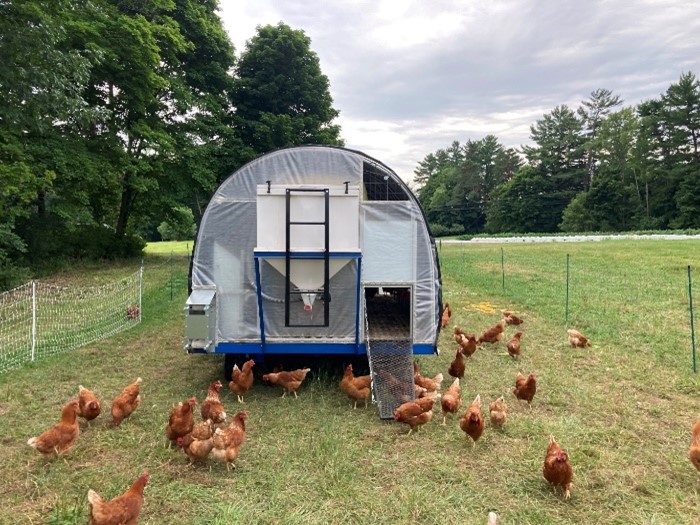By Tucker Diego, VT Agency of Agriculture, Food & Markets
April 1, 2023 | Montpelier, VT - Recently it seems like our office has received more calls from people interested in keeping hens and selling chicken eggs than ever before.
Perhaps the increase in egg prices has encouraged people to raise their own chickens and sell the surplus eggs. Or perhaps the trend started earlier when during the pandemic consumers couldn’t always rely on fully stocked shelves at grocery stores. Either way, there are now numerous small scale egg operations starting up across the state. This prompted our Division to develop a new resource for producers called the Vermont Shell Egg Labeling Guide.
For those who are starting a new egg operation or have an existing operation but have questions about labelling, this guide was made for you. Download the Guide at https://agriculture.vermont.gov/document/vermont-shell-egg-labeling-guide.
Below are several questions to test your egg labeling knowledge. Answers are provided below – or better yet, look up the answers in the Guide itself.
True of False
- Every egg carton must be labeled with the egg color.
- Egg producers do not require a license to operate in Vermont.
- The official egg grades are Grade AA, Grade A, Grade B, and Ungraded or Nest Run.
- Eggs must be washed before being sold.
- Egg cartons may be reused as long as they are clean, structurally sound, and any previous markings have been crossed out or covered up.
|
1) False. Color is an optional labeling requirement. Many labels include the egg color because consumers often prefer one color over another. 2) True. Unlike in other industries like dairy and meat, egg producers are not required to be licensed with the Agency. We still enjoy hearing from new producers and are always happy to answer questions. 3) False. “Ungraded” and “nest run” are not official grade terms for eggs sold in retail containers. The only official grade terms are Grade AA, Grade A, and Grade B. The quality standards for each grade can be found in the Vermont Fresh Egg Regulations (a link is provided within the Guide). 4) False. Vermont does not require eggs to be washed, however, eggs must be visibly clean and unbroken. Eggs must also meet the quality standards associated with each grade, where Grade AA allows for the fewest defects, and Grade B allows for slightly more. 5) True. Reused egg cartons are allowed but producers must make sure previous markings have been crossed out or removed to prevent misbranding. |

Hens enjoying a new mobile chicken house at Shelburne Farms. Most egg operations in Vermont have fewer than 50 laying hens (source: Vermont Agriculture and Food System Strategic Plan: 2021-2030).

